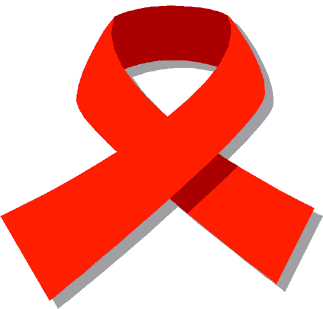
Search
Statistics
We have 222 registered usersThe newest registered user is raheelmemon
Our users have posted a total of 1140 messages in 613 subjects
If you are seeing this, you have attempted to link to the UpToDate widget but are experiencing a problem. Please visit UpToDate for more information.

Key Points: Depression and mania in patients with HIV/AIDS
FORUM FOR PSYCHIATRY RESIDENTS :: Psychiatry :: Psychiatry-Neurology-Psychology discussion :: Psychiatry In Depth
Page 1 of 1
 Key Points: Depression and mania in patients with HIV/AIDS
Key Points: Depression and mania in patients with HIV/AIDS
Key Points: Depression and mania in patients with HIV/AIDS


1. Patients co-infected with HCV, patients receiving treatment with interferon, and patients with disfiguring side effects of antiretroviral therapy (ART), particularly body fat changes, are more prone to develop depressive symptoms.
2. Clinicians who prescribe interferon-alfa should screen patients for depression at least every 4 weeks while they are receiving treatment.
3. There is a growing amount of evidence that a history of psychiatric disorders, such as depression, does not necessarily increase the risk of developing depression while receiving interferon.
4. Change in body fat is a common side effect of ART. Clinicians should assess mood at every visit in patients who develop changes in body fat.
5. Clinicians should implement interventions, such as medications or psychotherapy, for patients with moderate to severe depression or mild depression that does not resolve in 2 to 4 weeks.
6. Clinicians should individualize therapy, considering drug-drug interactions with HIV related medications, presence of comorbid psychiatric disorder(s), presenting symptoms, and side effect profile. As in other vulnerable populations, the concept “start low, go slow” remains the cornerstone of psychiatric medication prescribing for HIV-infected patients.
Check this link for details of Interactions Between HIV-Related Medications and Psychotropic Medications:
http://www.hivguidelines.org/clinical-guidelines/hiv-and-mental-health/appendix-ii-interactions-between-hiv-related-medications-and-psychotropic-medications/
7. Selective Serotonin Reuptake Inhibitors and Novel Antidepressant Medications:
Clinicians should ask patients who are receiving SSRIs about sexual side effects.
Clinicians should monitor patients for suicidal ideation during the initiation phase of SSRI treatment. Clinicians should consider discontinuing medication in patients whose
depression is persistently worse or whose emergent suicidality is severe, abrupt in onset, or was not part of the presenting symptoms.
8. Tricyclic Antidepressants:
Clinicians should monitor serum drug levels to ensure appropriate dosing of tricyclic antidepressants when there are concerns about adherence, absorption, or drug interactions.
9. Combining psychotherapy with antidepressant and mood-stabilizing medications is the most effective treatment option for many patients. If treatment with medications is not possible (e.g., some patients in recovery are opposed to taking psychotropic medications), psychotherapy alone may be as effective as medication in cases of mild to moderate depression.
10. Alternative Therapies for Depression :
Clinicians should inform patients who decide to use alternative treatments of the following:
Drug interactions and toxicities may occur
These treatments may take longer to be effective
These medications are not well studied
Clinicians should inform patients that concomitant use of St. John’s Wort with PIs or NNRTIs is contraindicated because it may lead to subtherapeutic ART drug concentrations.
11. Treatment Follow-Up:
After initiating treatment, clinicians should schedule a brief visit or phone conversation every 1 to 2 weeks to support adherence, assess response and side effects, and remind the patient that it may take 3 weeks or longer for mood to improve. After 3 to 4 weeks, the clinician should perform an in-person assessment of symptom improvement.
During the maintenance phase of treatment with anti-depressant medication, clinicians should schedule a brief visit every 4 to 12 weeks to assess adherence, sustained therapeutic response, and side effects.
After referring patients to another provider for medication or psychotherapy, primary care clinicians should schedule a brief visit or phone conversation within 1 to 4 weeks after the referral to ensure that the patient followed through.
12. Treating hypomanic patients with antidepressants may lead to a full-blown episode of mania.
SOURCE: http://www.hivguidelines.org/wp-content/uploads/depression-and-mania-posted-10-19-2010.pdf

 Similar topics
Similar topics» So dear friends, When a patients asks about the prognosis of his mania and mixed symptoms we have an answer for them in 1 week.
» Association of Depression With Increased Risk of Dementia in Patients With Type 2 Diabetes
» Psychiatric Treatment of Patient with HIV/AIDS
» Fish Oil Aids Bi-Polar Behavior In Mice, Hinders Alcohol Cravings
» Help patients SLEEP without medication
» Association of Depression With Increased Risk of Dementia in Patients With Type 2 Diabetes
» Psychiatric Treatment of Patient with HIV/AIDS
» Fish Oil Aids Bi-Polar Behavior In Mice, Hinders Alcohol Cravings
» Help patients SLEEP without medication
FORUM FOR PSYCHIATRY RESIDENTS :: Psychiatry :: Psychiatry-Neurology-Psychology discussion :: Psychiatry In Depth
Page 1 of 1
Permissions in this forum:
You cannot reply to topics in this forum

» L-Methylfolate: Who Will benefit
» Vitamins & Supplements in Clinical Practice.
» Imaging Biomarkers for Outcomes in Mild TBI
» Q.5 Clozapine Neutopenia
» Treating Disorders!
» Cortical Abnormalities in Adults & Adolescents with MDD
» Efficacy of Antipsychotics in Pediatric Acute Mania
» Obsessive Compulsive Disorder in Adults: Which Treatment is Better?